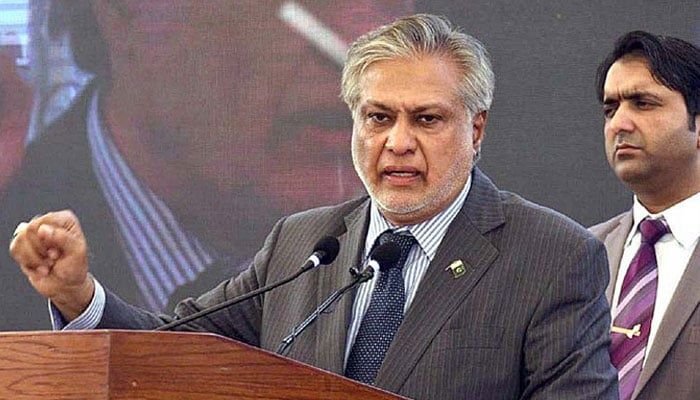Islamabad (TDI): Deputy Prime Minister and Foreign Minister Senator Mohammad Ishaq Dar on Friday outlined what he called one of the “most vigorous phases” of Pakistan’s recent diplomatic history, citing a string of high-level visits, policy dialogues, and multilateral engagements in July and August.
Speaking at the Foreign Office, Dar set out Pakistan’s foreign policy direction, centered on regional peace, trade revival, connectivity, and principled positions on global issues.
He highlighted Pakistan’s presidency of the UN Security Council in July, during which it chaired several sessions, including one on Palestine. “Under Pakistan’s leadership, a unanimous resolution calling for peaceful conflict resolution was adopted, a diplomatic milestone,” he said.
During a July 28 visit to Washington, Dar met US Secretary of State Marco Rubio for what he described as a “frank and constructive” exchange. He also addressed think tanks, including the Atlantic Council, where his remarks on judicial independence drew controversy at home. “The judiciary operates independently in Pakistan,” he said, rejecting what he called “political misinterpretations” of his comments.
Read More: Dar, Spanish Senator Discuss Bilateral Cooperation
Reaffirming Pakistan’s stance on Palestine, he pointed to his participation in the France–Saudi-hosted peace conference and the OIC emergency session in Jeddah on August 25. At the OIC, Pakistan dismissed the “Greater Israel” plan as “illegitimate and unacceptable.”
The minister also disclosed Islamabad’s behind-the-scenes role during the Iran–Israel flare-up. “Iran acknowledged Pakistan as a true friend, their parliamentarians even chanted ‘Shukriya Pakistan’,” he noted.
On August 20, he joined his Chinese and Afghan counterparts for trilateral talks in Kabul, covering refugees, border management, trade, and infrastructure. The three sides agreed on the Pakistan–Afghanistan–Uzbekistan railway project, with China signalling readiness to extend CPEC into Afghanistan.
Dar’s August 23–24 visit to Bangladesh included rare outreach to all major political parties, including the BNP and Jamaat-e-Islami. Six MoUs were signed in areas ranging from visa waivers to trade and cultural cooperation. He also advocated for reviving SAARC, noting Dhaka’s support but acknowledging “resistance from one member state.”
Read More: Dar, German Counterpart Agree to Deepen Cooperation
Earlier, in London (August 17–19), the foreign minister met senior British leaders, launched new digital services for Pakistanis abroad, and confirmed the lifting of the UK’s flight ban on PIA. “Flights to Manchester will resume in September,” he said, adding that a UK–Pakistan Business Advisory Council had been launched.
Looking ahead, Dar said Pakistan and China will mark 75 years of diplomatic relations in 2026 with cultural and economic initiatives. He underlined China’s increasing interest in agriculture, mining, and industry, and announced that 1,000 Pakistani students will pursue advanced agricultural training in China. Pakistan’s commitment to the “One China Policy” remains firm, he added, while acknowledging Beijing’s consistent support on Kashmir.
“Pakistan is no longer confined to reacting. We are helping shape regional conversations and global dialogues,” Dar declared. “Our foreign policy is rooted in principle, guided by experience, and aligned with the aspirations of the people.”
Farkhund Yousafzai is an Associate Editor at The Diplomatic Insight.



